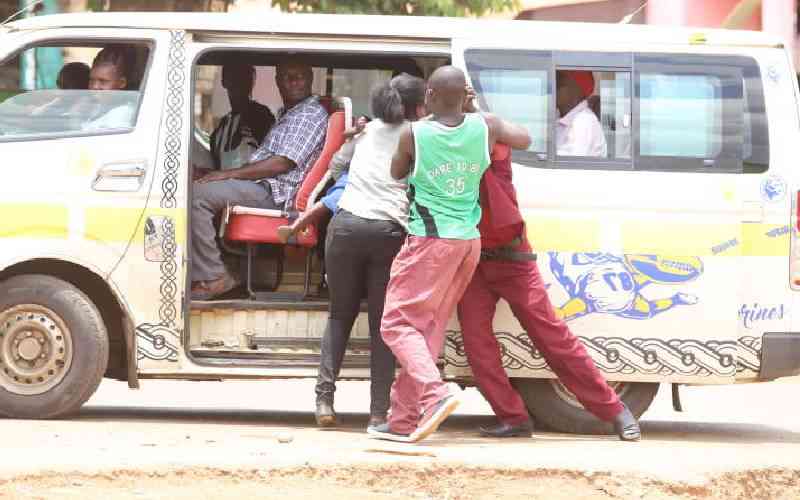After sunset, Nairobi's secret world of unroadworthy cars is buried beneath the bustling matatu system.
The matatus, a kind of public transportation still essential to commuters, play a major role in Nairobi's transportation system.
However, a vicious variety of matatus roams the city's streets as evening descends. Disregarding authorities and traffic laws and regulations, the so-called "Usiku Sacco" arises.
These defective matatus put Nairobians' lives at danger when they operate at night to avoid the watchful eyes of law enforcement agencies like the National Transport and Safety Authority (NTSA).

Did you read this?
The safety of passengers is subordinated to profit-driven drivers and conductors as they maneuver through the streets. Usiku Sacco matatus are easily recognized by their run-down exteriors and are infamous for having huge holes in their flooring, rust-covered exteriors, and shabby interiors.
On these once-legitimate cars, passengers are forced to endure the discomfort of sharp metal edges or cling to makeshift seats.
Every rider's safety is perilous with every pothole and abrupt turn on the route.
These illegal night activities are being performed by rogue personnel that deliberately put their lives and the lives of Nairobians at danger.
.jpg)
These drivers are notorious for their dangerous races between roads to reach their destinations as soon as possible.
Amid attempts to eradicate the culture, this dangerous dash against time has led to multiple accidents and injuries involving defenseless passengers.
Taking on Usiku Sacco's illegal transportation network is critical and working toward a more dependable and safe public transportation system as Nairobi grows and expands.
To ensure that this risky culture disappears and for Kenyans in Nairobi and other places to commute securely, authorities, commuters, and other stakeholders must collaborate.









